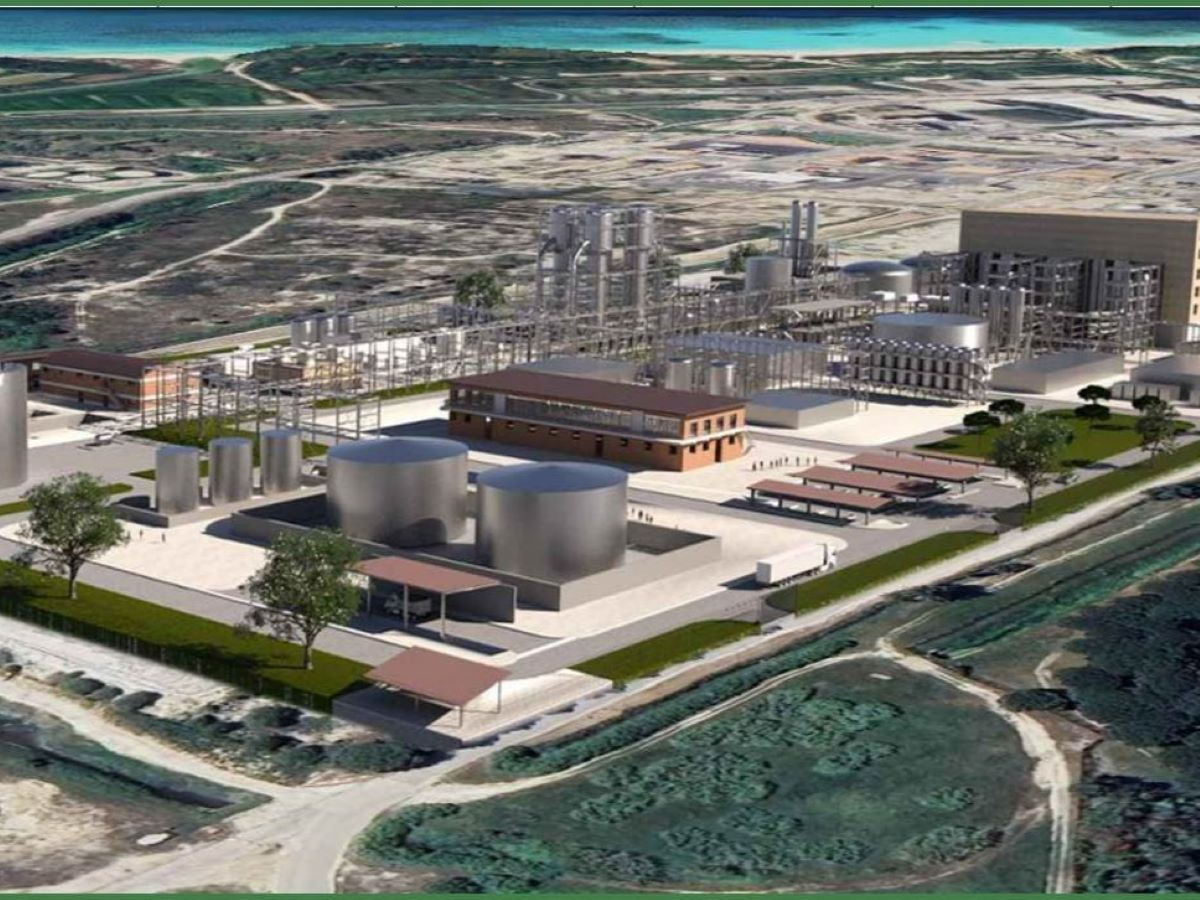Plasmix, SRF, non-recoverable demolition waste, garden waste and cuttings, medical waste, and biomass residues: in the world of waste, there are many examples of materials that cannot be easily reused or recycled. However, there is now an approach that involves transforming waste, particularly non-recyclable waste, into useful chemicals. Known as waste-to-chemical, the process involves turning the waste into synthesis gas, or syngas, a mixture composed primarily of hydrogen (H2) and carbon monoxide (CO), in different ratios, which can also contain carbon dioxide (CO2) or nitrogen.
Through various processes, this syngas can be used to obtain ethanol, methanol, ammonia, olefins, fuels, and much more. All these products can replace oil and natural gas derivatives as chemical bases, thus reducing the quantity of virgin raw materials used and cutting the overall emissions of industrial processes. One of the leading producers and licensees of waste-to-chemical plants is the Italian company NextChem, part of the Maire Group. For years, it has been promoting technological platforms to extract chemicals from non-recyclable and difficult-to-recover waste, to create entirely new value chains.
MyRechemical: moving beyond incinerators, thanks to chemistry
“The advantage of this technology is that it can utilise a wide variety of waste and residues,” explains Alessia Borgogna, Business Development Waste-to-Chemical Analyst at MyRechemical, a subsidiary of NextChem. “Therefore, it represents a very important path way into the circular economy for those types of waste that until now did not have adequate recovery processes for their chemical components, such as carbon and hydrogen.” This makes it possible, in some cases, to avoid using incinerators and does not compete with other sectors, such as that of organic waste.
The group’s project pipeline, in collaboration with chemistry giants such as Lanza tech and Johnson Matthey, is huge. “One of the latest technological innovations is ethanol fermentation for enzymatic synthesis using bacteria, which can be combined with well-established processes, derived from the chemical industry of coal syngas processing, such as ammonia and methanol synthesis,” Borgogna continues.
Circular and low-carbon fuels
Significant work is also being done on plants for the production of circular SAFs (sustainable aviation fuels), which can be obtained directly from syngas via the Fischer-Tropsch processor starting from ethanol. “We have an active project in Louisiana with DG Fuel that involves converting one million tonnes of bagasse [an extraction residue derived from sugarcane milling, editor’s note] into 450 million litres of Sustainable Aviation Fuel,” says Borgogna. The fuel, mixed with fossil-based kerosene at ever-increasing ratios, will serve to reduce airlines’ emissions.
Furthermore, last year, NextChem signed an agreement with Dutch chemical company Dimeta B.V. to build plants for the production of renewable dimethyl ether (DME) recycled from waste. DME can be mixed with traditional LPG, reducing the carbon footprint without having to modify LPG equipment or infrastructure. The goal is to produce 300,000 tonnes of DME by the end of 2027, building plants in the United Kingdom, Europe, and the United States. “Renewable, from-waste DME facilitates the transition to sustainable, low-carbon-emission energy, by itself or combined with LPG, responding to the needs of the circular economy to decarbonise many industries and sectors, including transportation,” says Giacomo Rispoli, Managing Director of MyRechemical.
The demand for waste-to-chemical plants is constantly growing. At the moment, MyRechemical has more than 30 projects in the pipeline, all over the world, from France to Saudi Arabia, and from the US to Australia. After all, where today there are still billions of tonnes of dispersed or non-recycled waste, the only solution is transformation into new circular chemicals.
This article is also available in Italian / Questo articolo è disponibile anche in Italiano
Images: NextChem, Maire



